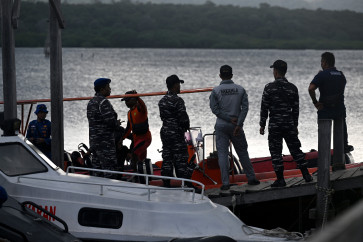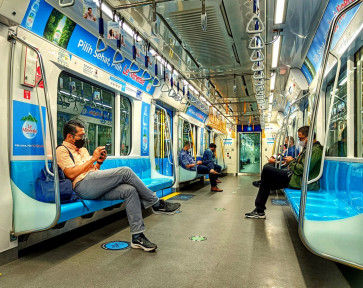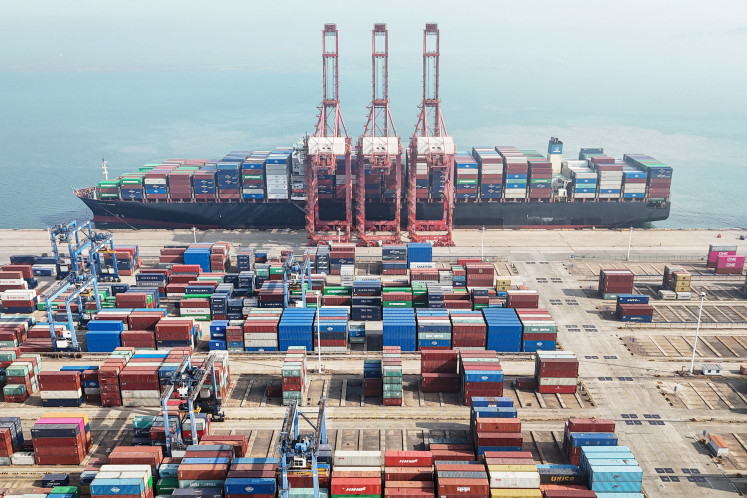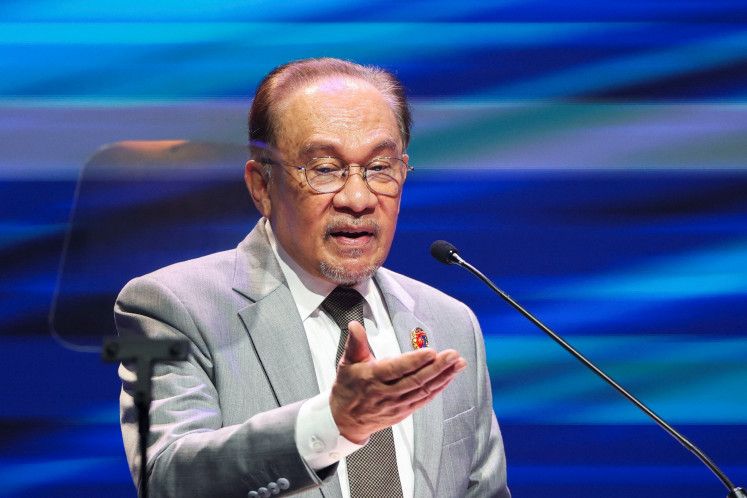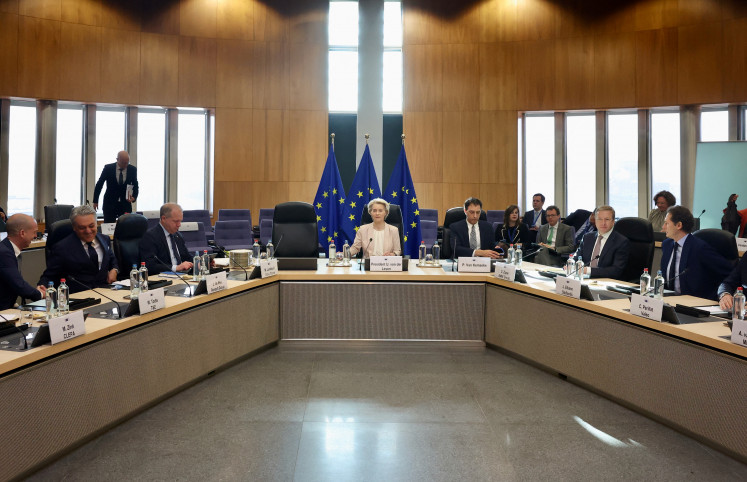Popular Reads
Top Results
Can't find what you're looking for?
View all search resultsPopular Reads
Top Results
Can't find what you're looking for?
View all search resultsGrand visions but few plans for Jakarta’s future
The men running to lead Jakarta must face the distressing truth: Urban development in the capital is lagging behind other metropolises in the Asia-Pacific region
Change text size
Gift Premium Articles
to Anyone
T
he men running to lead Jakarta must face the distressing truth: Urban development in the capital is lagging behind other metropolises in the Asia-Pacific region.
The news has not been all bad. According to a survey conducted by the Brookings Institute think tank in the US, Jakarta was ranked 17th among the world’s largest cities for growth, ahead of Kuala Lumpur and Beijing.
Meanwhile, other urban development experts have named Jakarta an “alpha city”, along with other metropolis such as Amsterdam, Beijing, Brussels, Moscow, Madrid, as a strategic metropolis with influence on the world stage.
Jakarta, the 12th most populous city in the world, is home to the ASEAN secretariat and hosts hundreds of international expositions and conferences every year.
The capital was even ranked the 28th best destination for investment by the super wealthy, according to the London-based property research outfit Knight Frank’s Wealth Report Attitudes survey, as previously reported in The Jakarta Post.
The quality of life for residents, however, is a separate issue. The Economist Intelligence Unit ranked Jakarta 125th on its list of the world’s 140 most livable major cities in 2011.
All the candidates for governor have released visionary plans to improve the city. Few have provided detailed plans for realizing their schemes.
South Sumatra Governor Alex Noerdin, for example, said that the development of North Jakarta, one of the most overlooked areas in the city by urban planners, would be his priority if elected.
“The coast of Jakarta will become better than Singapore’s,” Alex said in a campaign ad.
He also promised to move the city’s iconic Selamat Datang Monument, which currently sits in the center of the Hotel Indonesia traffic circle in Central Jakarta, to North Jakarta to symbolize his commitment.
Candidate Hidayat Nurwahid, nominated by the Muslim-based Prosperous Justice Party (PKS), promised to develop Jakarta into an Islamic financial hub, such as Dubai and Bahrain, by providing tax incentives to foreign business.
Other candidates, such as the University of Indonesia (UI) economist Faisal Basri and Surakarta Mayor Joko “Jokowi” Widodo, have agreed that reducing Jakarta’s horrendous traffic woes should be a priority for the next governor to attract foreign investors and tourists.
Faisal vowed to halt the construction of toll roads if elected, while Jokowi said that he would implement a “railbus” system in the capital modelled on the system he developed as mayor of Surakarta.
The air-conditioned vehicles, each with a 160-seat capacity, were intended to travel the 32 kilometers between Surakarta and Wonogiri, Central Java, at 80 kilometers per hour.
Problems emerged, however, when the railbuses, with a weight of 12 tons, were too heavy for existing railroad track can only accommodate 10-ton vehicles.
Independent candidate Hendardji Soepandji, meanwhile, said that he would build state-of-the-art public infrastructure while simultaneously increasing green space in the capital to 20 percent of the city, up from a current 11 percent. He did not specify which 9 percent of the city would be razed to green Jakarta.
“Compared to other big cities, Jakarta is lagging far behind. The Jakarta administration had the chance to expand city’s infrastructure when we hosted the SEA [Southeast Asian] Games last year, but the administration missed it,” he said.
Incumbent Governor Fauzi Bowo has dismissed notions that the capital has been lagging, saying that there has been significant progress during his tenure. To attract further investment, Fauzi said that he would continue development in the Marunda special economic zone (KEK) in North Jakarta, and would develop North Jakarta areas by establishing a so-named “waterfront city” .
Critics have said that Jakarta’s next leader must have clear guidance in developing the capital, arguing that many transportation and infrastructures were built as quick fixes. A long-term expansion plan is needed.
“Jakarta’s development has been aimless since the tenure of [former Jakarta governor] Ali Sadikin. Since then, the Jakarta Administration has been developing the capital in a wrong way, because they did not think in the long-run when expanding the city,” Marco Kusumawijaya from the Rujak Center of Urban Studies told participants at a
discussion recently. (sat)


